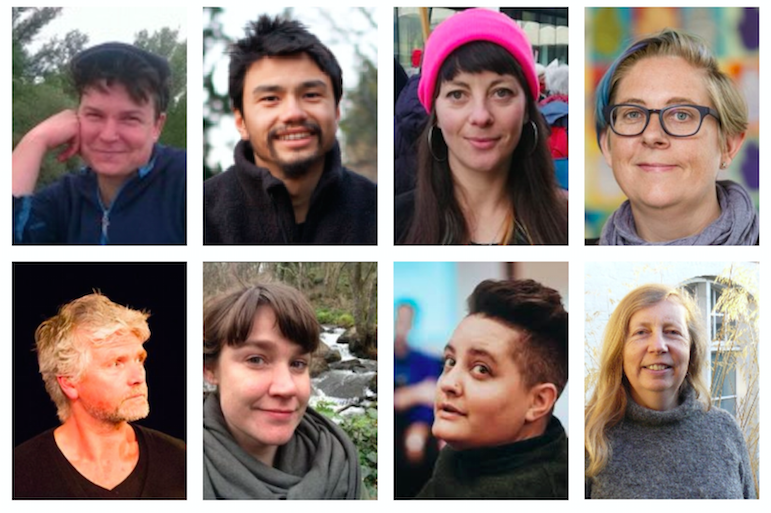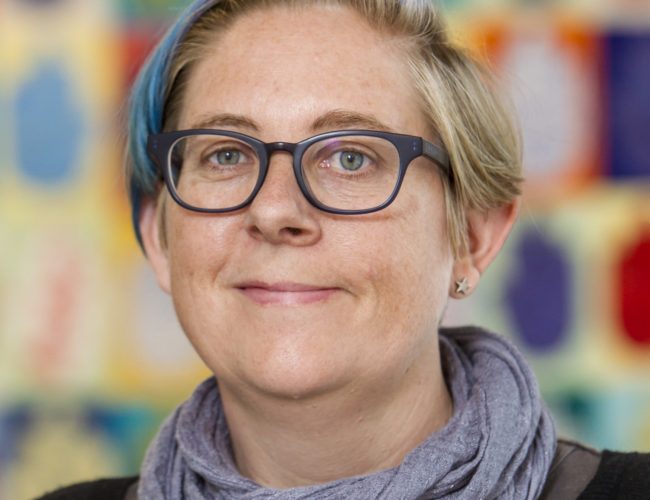
In the recently published ‘Resilience: The Science of Mastering Life’s Greatest Challenges’ the authors, Steven Southwick and Dennis Charney – both experts in post-traumatic stress drawing on research with dozens of trauma survivors – shared that people who are resilient tend to have one defining characteristic in common. They have a capacity to be flexible. Drawing on extensive research, the authors explained that flexibility is demonstrated both in the way that resilient people think about challenges, but also in the way that they react emotionally to stressful circumstances. Rather than remain wedded to a specific style of coping strategy, resilient people adapt and creatively explore and consider a range of different attitudes and ways of responding, and use emotions such as grief and anger as avenues for building compassion and courage.
Over the last decade the core training team at Ulex have provided thousands of hours of trainings to support resilience and capacity building across a range of European social movements. During that period we have seen an alarming rise within the European socio-political field of intolerance, right wing authoritarianism, and repression, along with increasing tensions caused by the ecological emergency. Our work has brought us into frequent contact with dedicated activists and campaigners struggling in the face of increasingly complex and challenging circumstances. There is a growing community of activist educators working to place sustainable and resilient approaches at the core of their groups and movements building power for the long-haul.
We asked some of these trainers to share their two top recommendations on building resilience.
EWERYST ZAREMBA : Spina Collective and ULEX trainer.

As a social activist and trainer, Ewe’s work is primarily with grassroots groups involved in social and environmental struggles in Poland and internationally. As a member of the SPINA Collective Ewe is also involved in trauma and emotional support currently dedicating most of their time to feminist, trans* and queer struggles. They are a member of the Ulex core team.
Eweryst’s two top tips for building resilience:
1. Do things that sustain your inner fire! Dance, read, swim, talk with friends, howl at the moon. Anything that gives you warmth in the chest or butterflies in the belly. And it can be many different things for each of us!
2. Share stories. It’s so important to share our stories with other fellow activists, with non-activists, with your grandparents and across your networks. Stories help us to learn from each others experiences, widen our perspectives and build solidarity.
HOLLY HAMMOND: Founder Plan to Win and Founder The Commons Library and Ulex Trainer.

Holly is an activist, activist educator and the founder of Plan to Win, a training organization in Australia which assists individuals and groups to develop the skills, clarity and wellbeing required to win change in the world. She’s also the co-founder of The Commons Library, a newly launched online social change library.
Holly’s two top tips for building resilience:
1. Embrace the complexity of change: One of the key ways we can remain resilient is by having an understanding of how change comes about along with a connection to the broader history of social movements. It’s important we have a view of the long-haul, because what can burn people out is wanting quick fixes. By developing an analysis of the world and an understanding of your place in it – how you can work with others to create change, along with a sense of the timeframes and scale – this can help you remain resilient in the face of short-term failures whilst having an awareness of the long-term arc of things.
2. Do the inner work: It’s key to do the inner work when building resilience, to know that you are fundamentally okay and therefore not measuring your self-worth through the successes and failures of your social change work. This means you’re far less likely to take it personally when you’re having disagreements with people. If you’ve cleaned up and tended to some of the early hurts that you’ve experienced in life, the wounds that might make you vulnerable or more likely to feel bad or unworthy about yourself, then you’re going to be more to be adaptable, and to weather the storms of social change work as they inevitably occur.
NIM RALPH : Co-founder QTIPOC London and Freelance Facilitator.

Nim describes themselves as a “behind-the-scenes” person in movement and campaign spaces. As a trainer, facilitator and consultant, Nim runs two training programmes that are about strategically skilling up the campaign and activist sector in the UK: Campaign Bootcamp and Movement Builders.
Nim’s two top tips for building resilience:
I think the challenge with resilience is that we talk about it as a personal practice, but really it comes from collective and communal relationship. My two top tips are:
1. Treat yourself like a houseplant: Regular hydration and nourishment is important. Get a houseplant and focus on looking after it, I often find myself in a symbiotic relationship with mine… when I’m not taking good care of my plants I usually realise I’m not taking good care of myself, and vice versa. Learn to understand how much sun you need, both literally and metaphorically – Vitamin D is important, so too is attention. Some of us are more introverted, others extroverted – think about where you get your energy from, and where drains your energy.
2. Find joy: I think we often hear the term resilience and think about how to tend to difficulty but a huge part of resilience is building in joy as if it’s as important as anything else in our approach to making change in the world. It’s one of the foundational blocks of any training or meeting I design for activists, organisers, campaigners and change makers. I make sure that there’s always humour, play and hopefully lip syncing in any training I run. Find your joy and don’t let anyone else define it for you; whether it’s hiking, sex, movies, board games, ukeleles, dancing, potatoes or axe throwing… find your joy and find people that share it with you. Bring it to the work – I truly believe we will not only be more resilient, but also more successful in our fights for liberation if we centre joy.
MAY MACKEITH : Co-Founder Natural Resilience Project and Freelance Trainer.

May is an experienced nature facilitator, who’s been helping people to connect with nature for over 13 years with Forest School Camps (FSC). More recently she co-founded the Natural Resilience Project, which builds personal resilience though connection to nature with migrant women in East London. She is a passionate campaigner and activist around climate justice and migrant justice with Reclaim the Power.
May’s two top tips for building resilience:
1. Listen up to what nature has to share! There’s something magic that happens when we hang around in nature. In this world where constant notifications bombard us and our minds and eyes are drawn to tiny screens, our senses are often drowned out and rarely can we pay proper attention or make time to really appreciate what’s actually going on. The world has so much happening, and an unfathomable lot of juicy wisdom to share. Take time where you ditch your phone, leave your laptop and spend even just 10 minutes really paying attention to what nature’s got going on around you. Bet you a tenner it’ll improve your day!
2. Clear away the dead wood: Create space, make time – we’ve been conditioned into delusions of a capitalist mentality, forced into self-important cycles of ‘busy-ness’ which, coupled with the urgency that global inequality and climate catastrophe bring, make it feel impossible to pause. But as the Wretched of the Earth Collective London so eloquently put it recently, to move at a pace which is ‘meaningful’ is to reject capitalist notions of productivity, and to create opportunities for intentional, focused, and directed action, which is what the world is desperately in need of in times like these.
ALI TAMLIT: Facilitator Resist + Renew, Trainer Collective.

Ali is a member of End Deportations and was one of the Plane Stupid ‘Heathrow 13’. He is a founding member of Resist and Renew — a group of friends, organisers and artists who believe in radical education.
Ali’s two top tips for building resilience:
1. Have non-political things going on in your life. This could totally slip into numbing out, so discernment is necessary. But I think having things that are important that aren’t about crisis are healthy. For me it’s been a return to teenage fun, so skateboarding and music.
2. Make space for honest and difficult chats. Conflict can be really tiring, but it can be even more tiring if it doesn’t get talked about. There are a few people that I work with closely who regularly make space for saying things and speaking up, so that situations don’t build up.
KATHRYN TULIP : Founder of Navigate, Facilitation for Social Change and Ulex Trainer.

Kathryn brings over 30 years of experience as a campaigner on a wide range of environmental and social justice issues and has worked with Seeds for Change offering training and facilitation to grassroots groups before beginning to work for Navigate.
Kathryn’s two top tips for building resilience:
1. Develop emotional awareness: In order to sustain engagement and involvement long-term it is vital to develop the capacity to recognise and hold our own emotions.
2. Work through conflict in your groups: Through developing a culture of willingness to explore difficulties in communication with others in our groups we build a resilient system for working through conflicts.
TASHA ADAMS : Co-director of Organising For Change training collective and Ulex Trainer.

A self described social change geek, Tasha brings a background of working as a grassroots activist focused on environmental and social justice, and anti-militarism, followed by a decade of professional campaigning. Natasha now works as a freelancer, prioritising projects promoting community organising approaches and nurturing European social movements, and is Co-Director of Organising for Change.
Tasha’s top two tips for building resilience:
1. Build collective care: There’s so much talk of the need for ‘self care’. While this is important, I think it plays into the atomisation and individualisation at the heart of the current system we’re trying to change. We need to re-build communities, and this starts with caring for each other, asking for help when we need it and stepping up to care for others. I blogged about this after Brexit.
2. Learn from other struggles: Learning as much as I can about how things have changed throughout history, and what movements are still achieving now, and sharing this with others. This stops me falling into the pit of hopelessness and buying into the system’s ‘common sense’ lies that this is just ‘the way things are’ – that’s a real part of how the system we’re fighting functions and sustains itself. This is one of the things we explore on The Ecology of Social Movements course I co-lead at Ulex, and I’ve written about this recently on my blog too.
G : Ulex Programme Director and Trainer.

G has been involved in social movement organising and education since the late 1980’s. He has designed numerous training programmes covering areas such as sustainable activism, effective socio-political organising, and movement ecology. He also does organisational and movement ‘accompaniment’, supporting longer term capacity building and strategising.
G’s two top tips for building resilience:
1. Meditate! It might not work for everyone, but the bedrock of my resilience is my meditation practice. Recognising just how much direct influence we can have over our mental and emotional life is revolutionary! The emotional literacy it brings and the insights into ‘ways of seeing’ it offers, helps me balance passionate commitment with deep patience. Acknowledging that my views are partial and provisional brings flexibility and responsiveness. And the body and heart are a source of deep resources. This site has some great resources.
2. Go for the Good of the Whole: This an an adage I learn from the systems thinker Donella Meadows. Learning to see ourselves and each other as deeply interconnected and committing ethically and politically to grow beyond self-preoccupation empowers our relationships with care and integrity. With that our relationships become healthier and grounded in mutual trust – freeing our collective potential. Integrating a systems view, we learn that ‘going for the good of the whole’ includes the parts – its not about self-sacrifice – and we gradually learn to recognise the inseparability of self and other! It’s a radical reorientation that, for me, has liberated a lot of energy.
READ ON: Sustaining Resistance : A Story of Regenerative Organising »»»
